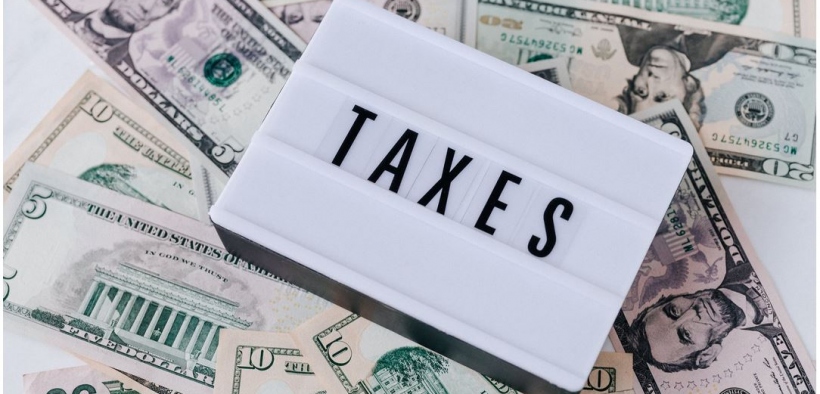4 Reasons Why You Need to Learn More About Filing Your Taxes
Share

Taxes create the capital that keeps our society afloat. However, they’re also perceived as a huge pain to file and to pay for the average citizen. Many people are content to do as little work as possible when it comes to filing their taxes; indeed, most people just want to do the bare minimum to ensure that they aren’t in any legal trouble.
As much of a burden as taxes are, it’s actually quite wise for you to educate yourself more about the tax code and how to file to ensure the maximum financial return for you and your family. Here are four reasons why you need to learn more about filing your taxes.
Ensure You Get the Maximum Return
Words like “deductions” and “exemptions” can be anxiety-inducing for anyone who hasn’t had a financial education. To the average person, the whole process feels overly complicated and confusing. The truth of the matter is that it is complicated and confusing. In fact, it’s like that by design. The more you know about the strategies and techniques at your disposal to get more money given back to you in the form of a return, the less money the government can take.
Protect Yourself Legally
Many people who are audited or targeted by the government for improper tax payment are genuinely guilty of intentional fraud. However, some people find themselves in hot water for honest mistakes. The more educated you are about taxes, the less likely it is that this will happen to you.
Better Manage Your Cash Flow
Filing taxes can feel like a burden, but it’s actually a great time to reflect on the overall state of your household’s cash flow. By thoroughly filing your taxes, you can get a very exact glimpse of how much money came in versus how much money came out of your accounts.
Receive Your Refund Faster
Many people have to wait a long time to receive their refund because the process of filing taxes takes a long time due to their lack of proper education on how to do it efficiently. The better your financial literacy, the faster you can file your taxes and receive your refund. If you need to learn more about how to file your taxes, consider enrolling in tax planning classes. Taxes are a necessary evil for the good of our society, but the process of filing your taxes doesn’t have to feel like torture.
Tax season is now over, but you still have some options when it comes to fulfilling your civic duties as a taxpayer. These special circumstances include filing late, requesting filing extensions, and filing paperwork stating why you are not filing at all. (Yes, you still have to file something that tells the government why you are not filing.) To file all of these late tax options, there are fees and penalties. They differ from province to province for provincial taxes, but the federal fees are the same.
Fees for Filing Late
You can file late, but you may not want to do that. It is costly, with the fees equaling one percent added to the total amount owed every month you file late and do not pay. If you owe, the Canada Revenue Agency will add five percent of the total amount you owe to the balance when you file late. This compounds over time with the one percent monthly fee until you pay what you owe. If you do not owe anything and are due a refund, the CRA can take the penalties just for filing late from your refund. You can prepay the estimated amount in late filing fees as well, but if the CRA determines a prorated amount for filing late, you will have to pay that amount or accept that it will be taken from your refund.
Fees for Filing Extensions
In most cases, you can request an extension to file your taxes if you file the extension request before the annual tax deadline. If you do that, the extension request filing is free, but you will pay late fees as they will accumulate on the late filing of your taxes. If you file for an extension to file your taxes after the annual tax deadline set by CRA, the fees are often based on the accountant’s company policy and/or provincial tax laws.
Fees for Not Filing at All
If you do not file paperwork with provincial and federal government bodies attesting to why you do not have to file taxes this year, the governmental powers-that-be can audit you. If you do not owe or you are tax exempt for some reason this year, you still have to file a document explaining why so that you will not be audited or flagged for auditing in the coming tax years. As long as you file this document, you do not have to pay anything at all (except for the postage to mail the documents). You can do this with or without the help of an accountant. If you fail to file this document, you may have to pay accountant fees and auditing fees if and when you are audited for not filing taxes or the document giving the reason for not filing this tax year.
If you’re self-employed, there are circumstances in which you should hire a firm that offers accounting services and get them to help you manage your work-related finances. Read on to learn what these circumstances are.
You Have Poor Numeracy Skills and Are Not Detail-Orientated
If you have poor numeracy skills and are not very detail-orientated, then it would be wise to engage the services of an accounting firm. If you have a tendency to overlook important details when filling in forms or if you find it hard to correctly calculate your total earnings, savings and expenses, then it is very likely that you will make a mistake when doing your own taxes that could lead to serious and expensive consequences.
For example, if when filling in your self-assessment form, you forget to fill in the information about the interest earned from your savings and investments, then you may receive a fine. Likewise, if you make an error when adding up your gross income for the past tax year, and this results in you stating that you earned more than you actually did and then paying more tax than you owe, you may have to spend time and money correcting this error and making a claim to get back the over payment.
An accountant who has exceptional numeracy skills and a keen eye for detail could help you to avoid making these errors and then suffering the consequences of these types of errors, as they can go over your financial records before you submit your tax return and ensure that there are no oversights or incorrect calculations that could result in problems later down the line.
You Have More Than One Job and are Still Struggling to Manage Finances
If you have more than one occupation, then you should consider using the services of an accounting firm. If you are trying to juggle more than one job as a self-employed person, you may find it very hard to monitor your finances, keep your financial records up to date and keep tabs on things like business invoices and debts. If you neglect the financial side of your jobs because you are too busy with other responsibilities, you may find yourself struggling to keep your small businesses afloat.
For example, you might not be able to keep your business from going under if you repeatedly fail to you to chase up unpaid invoices or if you fail to keep up with work-related debt payments (as this could result in hefty interest charges and a drop in your credit rating).
These are the types of things that an accountancy firm can help you with. Their employees will ensure that you don’t fail to perform your financial duties. They will assist you with the management of your finances and remind you of important financial deadlines or payments that need to be made.









